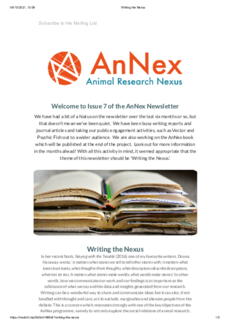Publications
This short report offers a review of some of the literature on reflexive practice in qualitative research teams. In bringing together some of the learnings and resources around team-based reflexivity, this report may offer a useful overview for planning and enacting future team-based research endeavours.
In the UK, claims are often made that public support for animal research is stronger when such use is categorised as for medical purposes. Drawing on a qualitative analysis of writing from the Mass Observation Project, a national writing project documenting everyday life in Britain, this paper suggests that the necessity of using animals for medical research is not a given but understood relationally through interactions with inherent vulnerability. This paper stresses the ubiquity of ambivalence towards uses of animals for medical research, complicating what is meant by claims that such use is ‘acceptable’, and suggests that science-society dialogues on animal research should accommodate different modes of thinking about health. In demonstrating how understandings of health are bound up with ethical obligations to care for both human and non-human others, this paper reinforces the importance of interspecies relations in health and illness and in the socio-ethical dimensions of biomedicine.
This paper explores what happens to care, and decisions about ending and extending life, when research animals become pets and pets become research animals. To do this, we draw on in- depth qualitative research on (i) rehoming of laboratory animals, (ii) veterinary clinical research, and (iii) the role of the Named Veterinary Surgeon (NVS) in UK animal research. Key contributions of our work include highlighting: how care roles can be split; the impor- tance of considering speculative and in-practice elements of care; the context-dependency and multiplicity of practices of killing in the veterinary clinic and laboratory; and the flexibility and changing nature of animal categories.
This report contributes to a growing body of advice around how to involve people affected by health conditions in laboratory or biomedical research. It draws on work completed as part of the Animal Research Nexus Programme (2017-2023) and brings together our findings with resources to help people who might be involved in conversations around the use of animals in laboratory research in the UK.
With an established history of controversy in the UK, the use of animals in science continues to generate significant socio-ethical discussion. Here, the figure of ‘the public’ plays a key role. However, dominant imaginaries of ‘the public’ have significant methodological and ethical problems. Examining these, this paper critiques three ways in which ‘the public’ is currently constructed in relation to animal research; namely as un- or mis-informed; homogenous; and holding fixed and extractable views. In considering an alternative to such imaginaries, we turn to the Mass Observation Project (MOP), a national life-writing project in the UK.
Animal research remains a practice marked by controversy and moral dilemma. However, UK science-society dialogues on the issue are increasingly managed via one-way transmissions of information which construct publics as passive and attribute their concerns to a lack of ‘correct’ knowledge. Challenging such assumptions, this paper questions how and why people actively manage their interactions with animal research through entangled practices of knowing and caring. Based on an analysis of writing from the UK Mass Observation Project, this paper explores difficulties and discomforts associated with animal research which can cause strategic withdrawals from engagements with the topic. In doing so, it extends existing concepts of ‘uncomfortable knowledge’ (Rayner) and ‘strategic ignorance’ (McGoey) to develop novel concepts of ‘uncomfortable’ and ‘strategic’ care. Finally, in examining desires to respond to animal research, I engage with Haraway’s notion of ‘response-ability’ to introduce the concepts of ‘responsive caring’ and ‘responsive knowing’.
Writing the Nexus
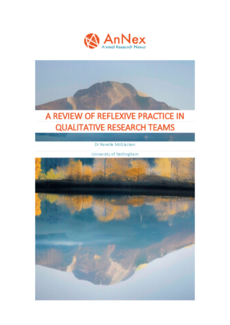
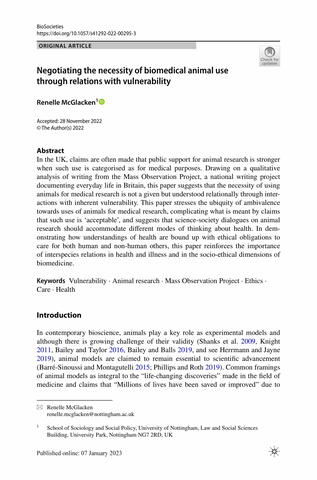

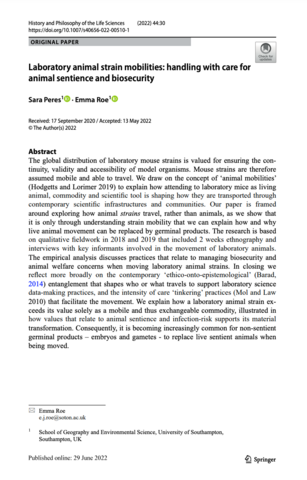
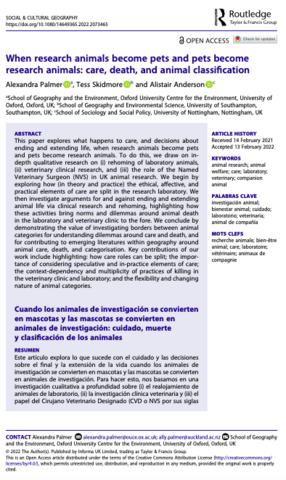
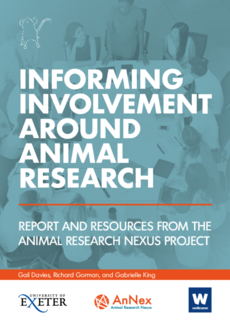
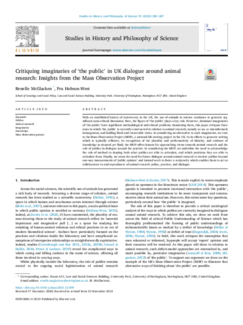
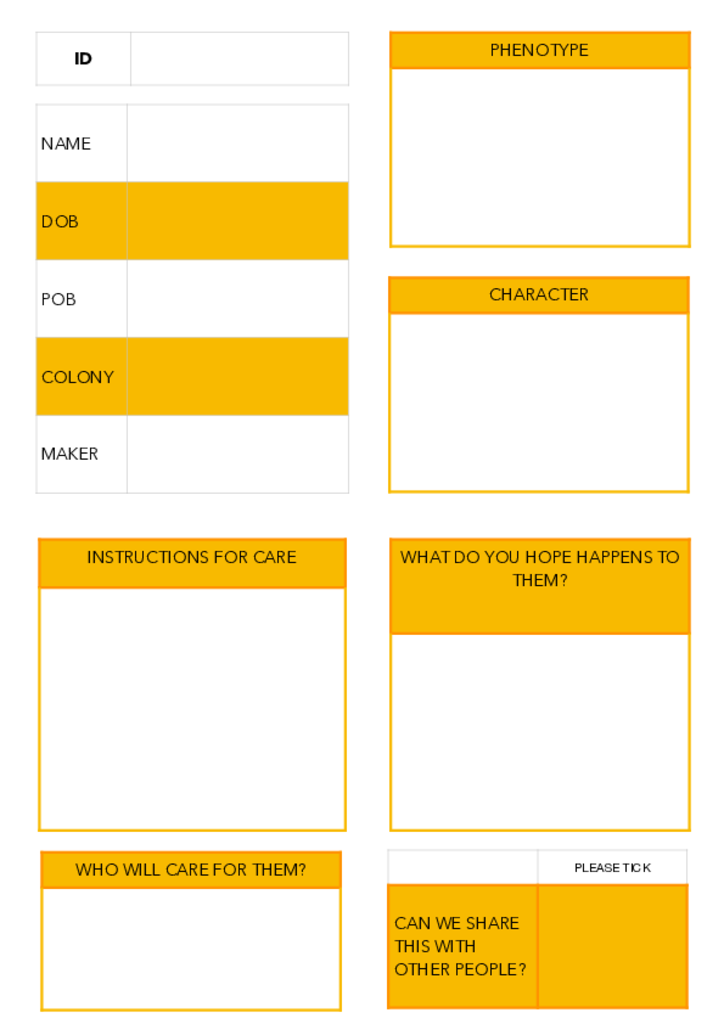
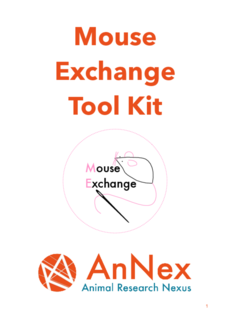
 Knowing and (Not) Caring About Animal Research_0.png%3Fitok=2jjq5NPu)
